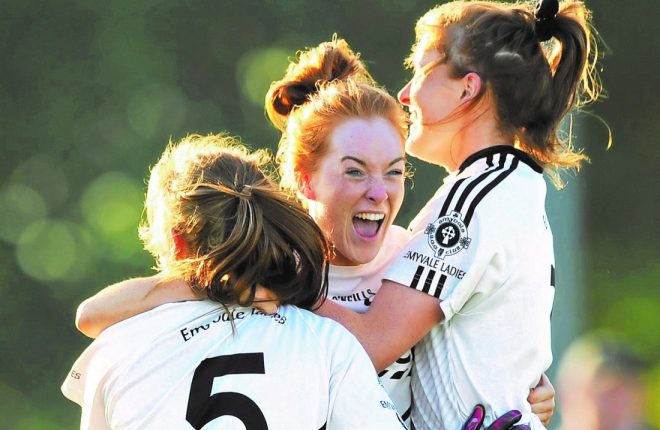
Competitiveness shouldn’t be avoided at underage level, according to John Hughes
By John Hughes
ONE of the recurring themes that flow through sport is the way orthodoxies are embraced and disposed of with equal zeal.
It is winners who set the trend. They have scaled the summit and so there is a natural tendency for those seeking to emulate them to follow their path, ape their every move.
Strength and conditioning, nutrition, psychology, breathing exercises, tight jerseys, contorted motivational acronyms, mystic symbols. There is no stone which will be left unturned when teams go in pursuit of victory.
There is a story told of a county team who spent a training session pushing the management’s cars around a car park. That team won nothing, so it’s a tale told with a sneer, a parable of the crazy and misguided trails a team will follow in their pursuit of silverware.
But don’t doubt for a second that if that team had contrived to win even a provincial title there would have been a cottage industry in car-pushing on the go.
Victory is the only arbiter of efficacy in the minds of some.
It was with that in mind that I read a piece by Sonia O’Sullivan in the Irish Times last week.
“I often find myself on the sidelines watching young athletes race, and there is no better place to see competition in its most natural state,” said O’Sullivan. “It doesn’t take much to realise who is the best, the fastest, the most competitive. There aren’t a lot of tactics employed, as they almost all rely on natural competitive instinct.”
O’Sullivan is an unabashed advocate for competitiveness in youth sport. She loves to sees youngsters fully embracing their competitive spirit.
It was this attitude that I found so striking.
In GAA there is an ongoing drive at youth level to excise the competitive element from games. The line that I’ve been spun on this topic is that players get more opportunity to express themselves when there is no competitive aspect at stake. Skills development comes front and centre and this leads to more skilful players who have a better chance of making it to adult level.
Peter Canavan is cited as an exemplar of the benefits of non-competitive youth football.
To me this is just a variant on pushing the car around the car park. Another fad which in ten or 20 years we will be rejecting with precisely the same piety we’re currently embracing it.
Athletics is a much more elemental, unadorned form of sporting expression than GAA, that’s true. In a team game there is more subtlety and one doesn’t necessarily have to possess a manic desire to win to be on a winning team.
However, it’s safe to say that the teams which win probably have more of those driven competitive characters on the pitch that those who come runner-up.
When it all boils down to it, sport is about winning and losing. If you have a problem with that, then you have a problem with one of the most fundamental aspects of sport.
Perhaps more to the point, dealing with winning and losing is a core part of daily life. One of key roles sport serves in wider society is to educate young people on how to react to the varying outcomes of the daily challenges we all face in life.
Grace and magnanimity in victory, poise and equanimity in defeat. Anyone who sees a four-year-old in action will know that these are not characteristics we’re born with. They have to instilled, and there is no better vehicle to communicate these principles than sport.
O’Sullivan makes the point beautifully in her piece.
“The best thing about these races is the aftermath: All the girls are the best of friends, rolling around on the grass laughing, not a care in the world – when only minutes before they were battling on the track,” said O’Sullivan.
That is what sport should aspire to do for young people.
Misguided attempts to remove the competitive element from games is just a case of abdicating our responsibility for a critical part of a young person’s development.
Receive quality journalism wherever you are, on any device. Keep up to date from the comfort of your own home with a digital subscription.
Any time | Any place | Anywhere











